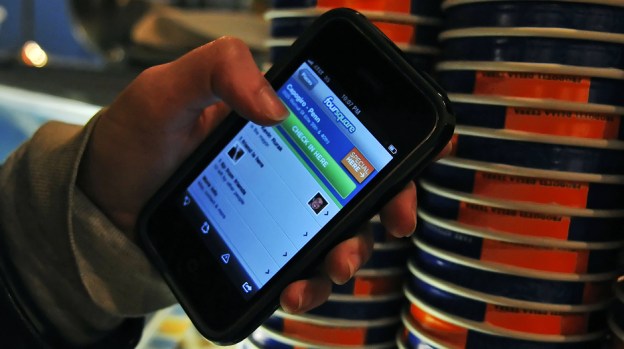
The age-old mantra of retailing is “location, location, location!” But, at least for smartphone users, so-called “geo-social” location-aware applications that aim to bring deals, special offers, and information to consumers based on their current locations don’t seem to be catching on. According to a new report from Forrester Research—which surveyed 37,000 people—only about five percent of U.S. online adults said they use location-aware apps at least once a month. Admittedly, that’s up from a figure of four percent in 2010, but it’s hardly the watershed enthusiasm many had expected to develop around location-based services.
The figures also contain some more bad news for marketers who may have been banking on location-aware apps: within that five percent, less than half (40 percent) use location-based apps weekly. The remainder use the apps monthly or less than once a month.
The figures seem to fly in the face of claims from so-called geo-social companies that claim to have millions of registered users. (FourSquare recently claimed to have 15 million registered users of all ages, with about half being outside the United States.) However, if Forrester’s survey is accurate, it suggests that the majority of accounts signed up for location-based services are derelict or seldom-used, and location-based apps are far from mainstream.
However, Forrester’s figures suggest users of geo-social apps are getting closer to mainstream American demographics. Last year, the survey found 78 percent of the users were male with incomes over $105,000; this year, they’re only 63 percent male, with an average household income around $92,700.
The survey lands on the heels of Facebook announcing it is acquiring location-based service Gowalla to build out Facebook’s own timeline feature. Gowalla service will shut by next month. Similarly, location-based service Whrrl was acquired by Groupon earlier this year.


